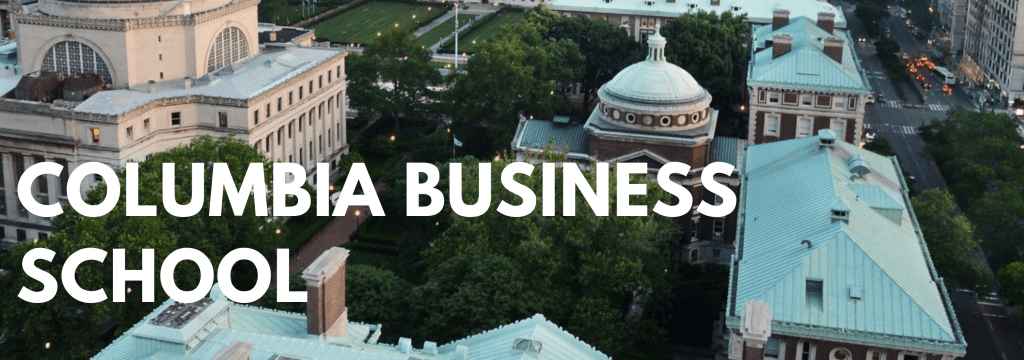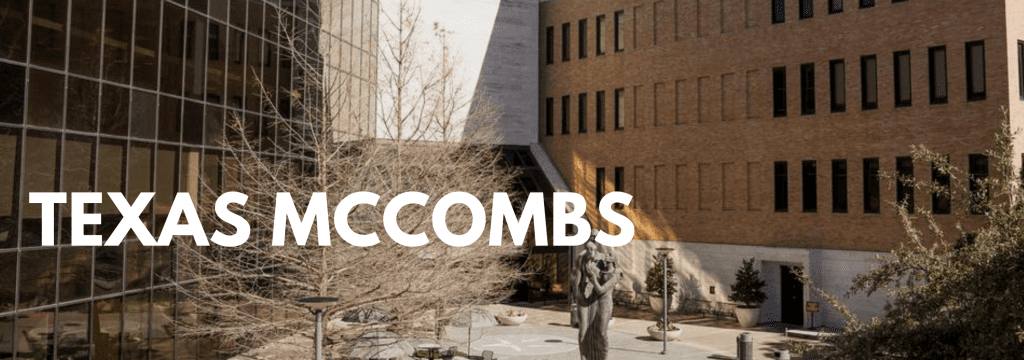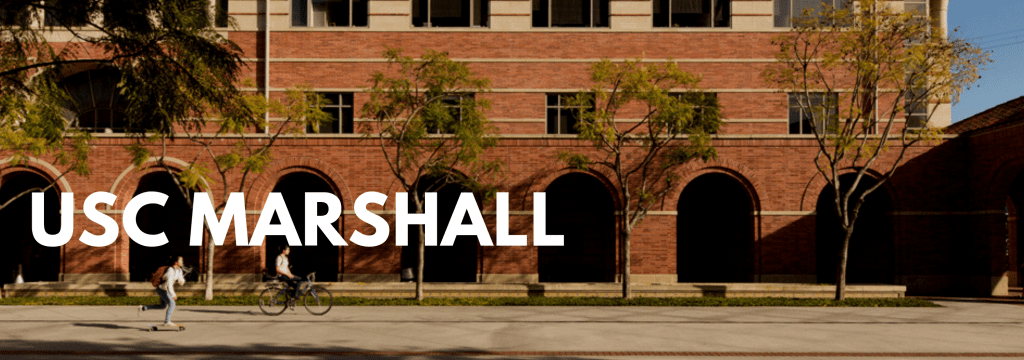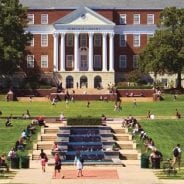Search results for career:
Blended Learning Part-Time MBA
McMaster Blended Learning Part-Time MBA Program Structure
The McMaster University Blended Learning part-time MBA program at the DeGroote School of Business is a nine-term program that takes around three years to complete. In each term, students take classes both in-person and online over three weekends from 8:30 a.m. to 4 p.m.
Curriculum
The first year of the program features many classes typically seen in a full-time MBA program, with core studies based around management, economics, and finance. Intermediate-level courses are introduced in the second year in courses like accounting, finance, marketing and operations, along with electives options to tailor career-focus. Innovation, integration, and interdisciplinary learning courses, along with more electives, are taken in year three, alongside the capstone project (strategic innovation project).
Tuition, Scholarships, and Financial Aid
Total tuition for the McMaster Blended Learning Part-Time MBA program is $57,500 CAD. In addition, there is a non-refundable $2,000 deposit required to hold a spot in the program. Deposits of $6,388 must be paid in the first three terms.
Those self-funding may be able to make their education tax deductible as well. Federal and private loans may also be available to assist in funding one’s education.
Admissions
In order to apply to the program, applicants must have a four-year Bachelor’s degree (or equivalent) with a minimum “B” grade average for the most recent two years of study, four-to-ten years of work experience, two letters of recommendation, and a 90-second personalized video. Those who have maintained the “B” grade average for the final two years of their BA study do not have to submit GMAT scores. Those with at least seven years of experience and a 600 GMAT score may also be accepted into the program.
APPLICATION DEADLINES
| Round 1: | November 1, 2021 |
| Round 2: | March 1, 2022 |
Executive MBA in Digital Transformation
McMaster DeGroote Executive MBA in Digital Transformation Program Structure
The unique Executive MBA in Digital Transformation at the DeGroote School of Business is one of the world’s first EMBA programs that specializes specifically in digital spaces, while providing students many of the traditional elements associated with EMBA programs, such as courses in finance, data science, and business analytics. In total, the McMaster Executive MBA program typically takes around 14 months to complete.
The program is split into four separate modules, held both at the DeGroote campus in Burlington, Ontario, and at the Stanford University campus. The curriculum is helped by an extensive partner networking, helmed by IBM, Rogers, and theScore, helping provide content for case studies, networking, guest lectures, and more.
Curriculum
Each of the four residency modules last between 8-12 days. Between the modules, split between the DeGroote campus and Stanford, classwork is completed online, making this a hybrid EMBA.
Module One: Foundation Courses
Module Two: Entrepreneurship & Marketing Analytics
Module Three: Thinking & Leading Beyond the Bytes
Module Four: Value Disruption in the Digital Age
Core courses involve traditional EMBA subjects, such as finance, marketing, and strategy, while integrating studies in data science and business analytics. During the entirety of the program, students complete one-on-one personal career coaching called Personal Leadership Effectiveness, as well as work on the Digital Capstone Project.
Tuition, Scholarships, and Financial Aid
Tuition for the McMaster Executive MBA in Digital Transformation is currently $89,000 CAD. This cost also covers course materials, residency expenses, transportation during residencies (although not transportation to and from residency locations), and some meals. A $5,000 deposit is required to hold a spot in the program.
Employers interested in sponsoring applicants to the McMaster Executive MBA in Digital Transformation can receive tax credits in exchange for partnership. Those self-funding may be able to make their education tax-deductible as well. Federal and private loans may also be available to assist in funding one’s education.
Admissions
In order to apply to the program, applicants must submit a resume, in addition to a four-year Bachelor’s degree (or equivalent) with a minimum “B” grade average for the most recent two years of study, seven-plus years of work experience, and English-speaking proficiency (may require TOEFL/IELTS scores if enrolling from a non-native English-speaking country or academic institution). Those without a BA must have at least 12 years of work experience.
In addition, the following must be provided:
• Official transcripts
• GMAT/GRE scores (may be waived)
• Two letters of recommendation
• One letter of support from an employer
• An application fee
2020-2021 McMaster Executive MBA Deadlines
July 1, 2021: Cohort Application Deadline
FAQ for the McMaster Executive MBA
How has the university coped with the pandemic?
The university has gone almost exclusively virtual due to Covid-19. In fact there is a virtual ‘Ingenuity Incubator’ for female students looking to create opportunity during the pandemic.
What is the focus of the Degroote EMBA?
The Degroote EMBA focuses on ‘digital decisions and data-driven decisions’.
Are there international opportunities for students?
While many international opportunities are postponed due to the current pandemic, Degroote typically has four residencies in different locations to provide students with real-world experiences.
MBA Job Profile: Technical Program Manager
Most successful businesses involve many moving parts. To coordinate personnel and logistics in a rapidly evolving technological landscape requires large teams of individuals and a solid technical background. This is precisely where technical program managers come in handy: they steward all aspects of a program from initiation to implementation.

What is a Technical Program Manager?
Technical program managers handle company technical needs, leading teams in product development and software implementation. They ensure that deadlines are met, and any technical issues are swiftly resolved. This requires the marriage of two traditionally unrelated skill sets—personnel management and technical proficiency.
Since every business has unique technical needs, the specific skills required may vary from company to company. However, there are certain elements that hold true regardless of a company’s specific focus. The most important attributes of an aspiring technical program manager are an acute intuition for leadership, the ability to adapt, and a keen sense of the inherent logistical needs that arise from the combination of these two areas.
Technical program managers aren’t just required to oversee projects; they must also be diligent in tracking issues within the programs they manage and successfully troubleshooting them. They are also required to utilize their expertise to assess the large-scale technical needs of a company and initiate programs accordingly. This requires the identification of all action items necessary for a program’s success as well as schedule and budget development.
Technical Program Manager Salary Expectations
According to Payscale, the median income for technical program managers is $121,627, while Glassdoor cites the average salary at $125,219. Generally speaking, experience affects pay. Technical program managers with less than one year experience earn around $90,000. Those who have been working for over 20 years earn approximately $132,000.
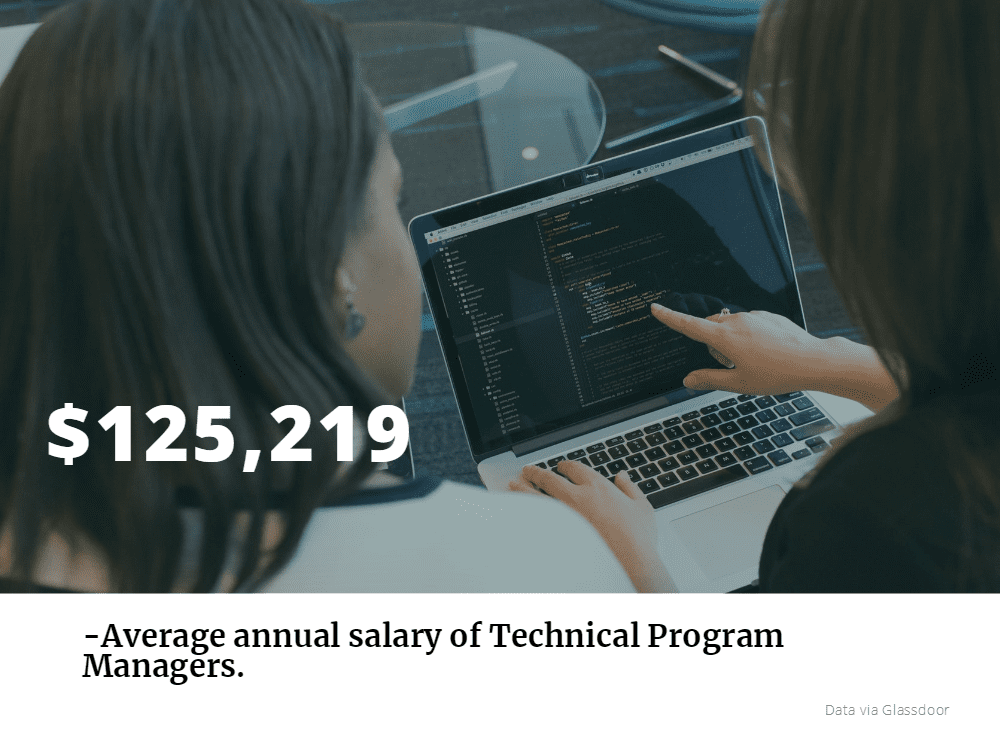
Infosec, an institution that offers educational resources focused on cybersecurity, offers different statistics that are less optimistic. It quotes the national average salary for technical program managers as $89,000 a year. Less experience managed often make $71,000. Senior-level managers typically see around $99,000 per year. Those in urban areas are likely to receive a higher salary than those in less densely populated areas.
However, Infosec is quite optimistic about the future for aspiring technical program managers. It estimates that number of positions will grow by roughly 15-20 percent over the next eight years.
Getting Started
Becoming a technical program manager means having at least a bachelor’s degree in fields like management, business administration, or computer science. Some businesses might hire someone who does not have a bachelor’s degree if they do have prior experience working in a related field. Naturally, if you have both experience and a relevant bachelor’s degree, or an advanced degree, you will stand out to potential employers.
Typically, this means earning an education in an engineering school, rather than a business school. However, business schools offering dual degrees can help provide a path for future technical program managers.
For instance, Harvard Business School offers a MS/MBA option. Earning an MS/MBA from the world’s most well-known academic institution means having world-class career preparation, leading to a similarly world-class career. Harvard MBA graduates, in general, can expect an average annual salary of around $140,000—and that’s before one takes signing bonuses and other benefits into account.

Many of the world’s best business schools, like HBS, offer special dual degree MBA programs for hopeful technical program managers.
A Guide to the Specialized Master’s in Marketing

Welcome to MetroMBA’s Master’s in Marketing Guide. A specialized Master’s in Marketing degree is designed for students who are interested in working in a management position in the field of marketing. There are many career options for graduates including working in the field of brand management, digital marketing, marketing analytics and research, marketing strategy, marketing communication, and pricing strategy.
Scroll down to find some of the world’s best Master’s in Marketing degrees offered by the world’s leading business schools: a list that continues to grow year by year. But first, what is a Master’s in Marketing, what does it take to graduate, and what career opportunities are available after graduation?
What is a Master’s in Marketing?
A Master’s in Marketing (MS Marketing) is hyper-focused on marketing curriculum. Often, it does not offer courses in accounting, finance, or business strategy. Instead, its goal is to provide students with the tools and fundamental knowledge needed to excel in all aspects of marketing. It covers a range of in-depth topics including consumer insights, marketing analytics, new product development, internet marketing, branding strategy, and more.
The program is ideal for students interested in pursuing or enhancing their marketing career. It helps by developing, enhancing, and refining a student’s marketing techniques so that they can be more effective locally and globally. Whether graduates engage in promotional advertising, consumer research, or corporate marketing, a Master’s in Marketing provides the education required to run a marketing team.
Typical Coursework
Most Master’s in Marketing curriculums can be customized to the field or industry that best matches a students career goals and interest. It typically requires around 30 credits to graduate with courses spread across marketing analytics topics, consumer behavior, sales forecasting, marketing strategy, and more. Areas of interest include entertainment, sports, luxury and lifestyle, healthcare, technology, and start-ups.
Typical classes include:
- Business Fundamentals for Marketers
- Marketing Statistics
- New Product Development
- Consumer Insights
- Pricing Strategies
- Public Relations
- Marketing Strategy
Depending on the program, you may have the option to customize your coursework to a more specific area of marketing. For example, you could choose to elective courses, covering:
- Data Mining
- Big Data
- Sales Forecasting
- Fostering Creativity
- Business Law and Ethics
In some cases, students may have the opportunity to pursue an internship during their MS in Marketing. These internships typically contribute to your credits required to graduate and may take place over the summer. Beyond internships, students can also work in marketing research or complete a consulting project for course credit.
Program Accessibility
Many Master’s in Marketing programs tend to be shorter with full-time students taking less than 12 months to graduate. However, part-time students can take anywhere from two to five years to graduate. Programs can be full-time or part-time, residential or online, it all depends on the exact program you choose. Whatever program you choose, you’ll gain the tools, frameworks, critical thinking skills, and practice in hands-on projects you need to succeed in a marketing career.
Admissions into a MS of Marketing program is typical of any master of business program. It can vary based on the business school, but typically requires an undergraduate degree in marketing and at least a professional internship in the field of marketing.
Applications may consist of:
- Resume (work experience ranges from 0 to 4 years, but averages around 0 to 2 years)
- Essay or Personal Statement
- Letters of Recommendation
- Academic Transcripts
- GMAT or GRE scores
Applicants are not required to have full-time work experience in marketing before applying. However, they are encouraged to have some type of background in marketing, whether that be an internship or an undergraduate degree.
Typical Cost
A Master’s in Marketing degree is often far more affordable than an MBA. At the most affordable schools, a MS of Marketing could cost as little as $10,000 in tuition for a year of study. However, at a more prestigious business school such as USC Marshall, one credit costs $1,912, and since it takes 30 credits to graduate, the total cost of tuition is $57,360.
There are also a limited number of scholarships open to qualified students. Most often these are partial scholarships awarded based on merit or need. Beyond scholarships, there are teaching and research assistantships to help pay for courses.
Career Opportunities
The marketing profession is one of the fastest-growing career fields in the world. It’s projected to grow 9 percent between now and 2024 in advertising, promotions, and marketing management. For individuals who possess skills in digital marketing, communications, market research, public relations, and product development, there are many job opportunities available. Master’s in Marketing graduates are well-positioned to accept management roles in both regional and global firms of all sizes.
Graduates go on to work in a wide range of businesses including marketing agencies and Fortune 500 companies. Potential employers include:
- Netflix
- Disney
- ESPN
- UM
- Proximity
- Freeman
- Accenture Interactive
- IBM
- Deloitte Digital
Master’s in Marketing graduates typically earn less than MBA graduates due to the specialized nature of their skills. They also tend to have far less work experience under their belts, often just a year or two. The 2018 median pay for an Advertising, Promotions, and Marketing Manager is $132,620.
Here’s how the salaries break down in terms of annual median salary (USD):
Marketing Manager: $102,039
Account Executive: $72,611
B2B Channel Sales Representative II: $78,000
Brand and Content Marketing Senior Manager: $131,200
Business Analyst – RFP: $61,550
Marketing Research Analyst: $63,120
The Top Master’s in Marketing Programs
Columbia Business School‘s top-ranked MS in Marketing Science lasts two terms, featuring a curriculum with a specialty focus in marketing analytics. Tuition for the proram is currently set at $64,320 for the 10 course program. Students graduate from the CBS MS in Marketing Science program after completing 30 credits worth of courses, with up to two optional MBA classes allowed as electives and a minimum of two Ph.D. classes required.
HEC Paris hosts one of the highest-regarded marketing programs in the world, with its MSc Marketing degree. A staggering 100 percent of graduates from the program earn employment within three months of earning their degree (nearly 70 percent earn two job offers), with an average starting salary of €46,000. The current total cost of the program is € 25,750.
In addition to a specialty Marketing MBA, the McCombs School of Business at the University of Texas’s highly regarded marketing department (ranked fifth best in the U.S. by U.S. News & World Report) also offers a Masters of Science in Marketing degree. The 10-month Texas MSM currently costs an estimated $43,000 for in-state residents, and just $48,000 for those out-of-state. No minimum work experience is required for potential applicants.
The most recent Texas MSM class featured an even split of students, with 50 percent male students and 50 percent female students. About 87 percent of the class comes from the U.S.
The USC Marshall School of Business offers a litany of highly-regarded MBA and Master’s programs, including one of the top-ranked Master’s in Marketing in the country. The USC Marshall Master of Science in Marketing (MSc) is a highly-personalized system, allowing students to take classes alongside full-time MBA students, part-time MBA students, and those in other specialized master’s programs. The 30-unit program offers two prospective tracks: Analytics (STEM) and Consumer Behavior.
The tuition for the program is currently $1,980 per credit. Over 30 credits, this total comes to $59,400. No work experience is explicitly requried to enroll in the program, but at least 12 months of relative experience is strongly suggested.
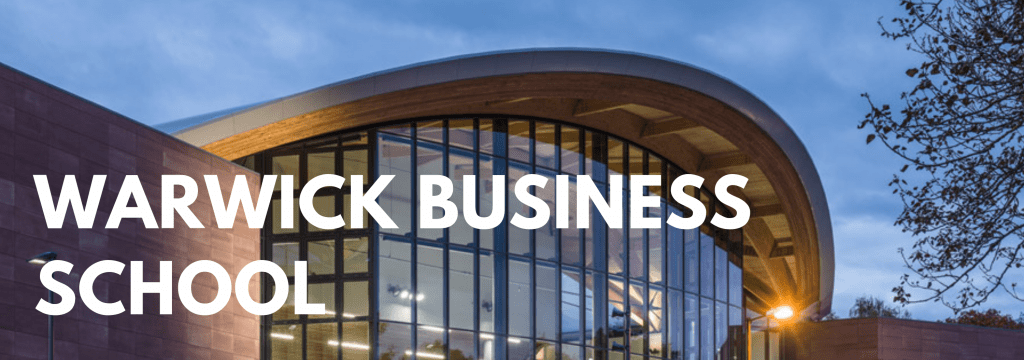
The AACSB-accredited Warwick Business School (WBS) offers a wide array of Master’s in Science (Msc) options, including the MSc Marketing & Strategy program. The fee for entry into this top-ranked European program, regardless of whether students are UK citizens, is a flat rate of £28,500. Students in the program complete six mandatory modules and three additional, optional modeules, which can vary totally dependent upon the individual student’s academic preferences.
Recent graduates from the program earned an average annual salary of £32,412; not including benefits and other extra incentives. The average Warwick MSc Marketing & Strategy student is 23-years old, with around 65 percent female students in the class.
 Loading Programs
Loading Programs
New Transportation Industry Jobs Emerge for B-School Grads
There’s no getting around the fact that car culture is the primary means by which Americans get around. While it is highly unlikely that this culture will disappear altogether, many factors including electric and hybrid vehicles, rideshare programs like Uber and Lyft, improved mass transit, and far-flung projects like Elon Musk’s Hyperloop, suggest transportation will change dramatically in the not-too-distant future.
MBAs would do well to take note of the many opportunities embedded in the transportation industry.
Corporate Development and Global M&A – Analyst — General Motors
General Motors is the largest automotive manufacturer in the United States. Traditionally known as one of the Big Three car companies—the other two are Ford and Fiat Chrysler—General Motors’ best-known brands in the United States are Chevrolet, Buick, GMC, and Cadillac.
General Motors is hiring a Corporate Development and Global M&A – Analyst to work at either its headquarters in Detroit, Michigan, or its offices in Bupyeong, Korea. The person hired for this position will join the company’s Corporate Development and Global M&A team, which is tasked with developing methods to deliver on corporate strategy. Some of the team’s areas of focus are alliance management, new business development, and corporate and regional strategic initiatives. This job requires at least three years of prior relevant experience, and an MBA is preferred.
Key responsibilities include:
- Leading business case development for deals
- Supporting transaction execution
- Managing post-transaction partner relationships
To learn more about this and other jobs, please visit the General Motors career page.
Associate Director — BP
BP is a global energy firm that employs 75,000 people across 80 countries. The company covers all aspects of the energy market, from drilling and refining to trading and renewable energy.

BP is looking for more MBA talent to join its Houston team.
BP is hiring an Associate Director who will work from its office in Houston, Texas. The person hired in this position will be working as part of a team that provides bespoke energy risk management services and solutions to clients. The hiree will serve oil and gas producers, refiners, and airlines, among other corporate and financial parties. This job requires at least five years of relevant prior experience, and an MBA is preferred.
Key responsibilities include:
- Identifying possible transactions
- Delivering gross margin targets and business returns
- Managing various financial relationships
Visit the BP website to learn more about this positions and other employment opportunities.
Sr. Inventory Control Analyst — Tesla
Based in Fremont, California, Tesla is a major leader in the transition to sustainable energy. Although it is best known for its cars, the company also produces a variety of energy storage and generation units, including the Powerwall, Powerpack, and Solar Roof.
Tesla is hiring for a Sr. Inventory Control Analyst who will be based in its Fremont headquarters. The person hired to this position will be responsible for keeping an eye on the company’s inventory, ensuring its accuracy and maintaining an appropriate balance. The best candidates for this position will have at least five years of previous relevant experience. The company prefers candidates who possess an MBA.
Key responsibilities include:
- Monitoring inventory accuracy to enable reviews by senior management
- Reviewing inventory reconciliations
- Supporting the implementation of policies that ensure accurate inventory tracking
Visit the Tesla website to learn about this position and others.
Global Revenue Management Center of Excellence Advisor — ExxonMobil
ExxonMobil is a major player in the global petrochemical industry. The company plays a role in all aspects of the energy chain, from mining and refining to marketing and retail through its brands (Exxon, Mobil, Esso).
ExxonMobil is hiring a Global Revenue Management Center of Excellent Advisor who will work out of the company’s office in the Houston suburb of Spring, Texas. The person hired to this position will be responsible for many things, including ensuring the delivery of effective revenue management processes and frameworks for the lubricants value chain. This job requires prior relevant experience, and an MBA is preferred.
Key responsibilities include:
- Contributing to revenue management objectives and strategies
- Analyzing market influences to develop optimal decision-making and business improvement recommendations
- Establishing an analytics work plan
More information about this job and others can be found at the ExxonMobil website.
Master of Accounting
Michigan Ross Master of Accounting Program Structure
The eight month Michigan Ross Master of Accounting program (MAcc) is a uniquely integrated Master’s program, allowing students to combine the curriculum of a traditional accounting program with the school’s highly-regarded MBA program. This means not only being prepared to take the CPA, but crafting a career after school that doesn’t solely follow one strict path. The program begins in the fall.
Not just limited to MBA electives, MAcc students can opt to enroll in a litany of electives across the University of Michigan, including it’s schools of public policy, law, and much more.
Curriculum
Seven courses in total make up the MAcc core curriculum. They are as follows:
• Corporate Financial Research and Reporting
• Federal Taxation (may be waived)
• Financial Instruments and Structured Finance
• Information Systems Design (may be waived)
• Advanced Financial Accounting
• Auditing & Assurance
• EY Accounting and Public Policy Symposium
The Federal Taxation and Information Systems Design courses may be waived for students who completed the courses during their undergraduate studies, maintaining a GPA of at least a “B.” If those conditions are met, the course(s) must be replaced by one of 11 possible core electives.
A multitude of non-core electives are available for MAcc students. Up to six units for coursework can be completed for non-Ross courses.
During the program, MAcc students participate in two seminars with the school’s Sanger Leadership Center, helping develop lessons in ethics, leadership, and teamwork. In addition, one of the required core courses is a trip to the Washington DC EY Accounting and Public Policy Symposium, helping students develop an “understanding of the public policy process of business and accounting through visits from top-level speakers and trips to relevant sites around the nation’s capital,” according to the official Ross MAcc website.
Class Profile
The most recent University of Michigan Ross School of Business MAcc class featured 100 students, scoring an average GMAT of 650 and a GPA of 3.6. The class is around 53 percent female, with 47 percent male students. About 38 percent of the total class was made up of international citizens, with 72 percent of the class, in total, coming from outside of Michigan.
The average work experience ranged from no experience to as much as nine years. About 52 percent of the class studied accounting as undergraduates, with 32 percent business grads, and 16 percent liberal arts graduates.
Career Statistics
One-hundred percent of MAcc graduates earn employment offers within six months of earning their degree from the Ross School of Business. Upwards of 89 percent of graduates earn roles in the accounting industry, earning an average base salary of $55,123. Those in advisory roles (11.3 percent of the most recent class) earn the highest average annual salary rate out of school at $64,750.
The majority of MAcc graduates from Ross earn jobs in the Midwest (56.3 percent), followed by the Northeast (15 percent), and the U.S. West (five percent).
Tuition, Scholarships, and Financial Aid
For in-state residents, the University of Michigan Ross Master of Accounting program tuition costs $49,000. Out-of-state and international student tuition is $54,000.
There is a mandatory $164 per semester fee, a $1,200 fee for the Washington DC EY Accounting and Public Policy Symposium, and a $500 per semester fee for international students. Additional costs may vary, with current estimates around $1,716 for books and supplies, $16,197 for food and housing, $6,352 for miscellaneous expenses, and $222 for loan fees.
Within a week of submitting an application to the MAcc program, potential students are encouraged to apply for scholarship consideration, which will simultaneously cover applications for: scholarships; Graduate Student Instructors (GSI); and Global Practicum Course (Study Abroad) Sponsorships. Third-party scholarships outside of the University of Michigan network may also be available. U.S. Armed Services veterans may receive additional tuition assistance through the Yellow Ribbon Program.
U.S. applicants may be eligible for Federal unsubsidized, Perkins, and Grad PLUS loans. Additionally, private loans may be available for both domestic and international applicants.
Admissions
Prior to enrollment, MAcc applicants must complete the following required courses: Principles of Financial Accounting; Principles of Managerial Accounting; Intermediate Financial Accounting; Microeconomics; and Business Statistics. The Intermediate Cost Accounting course must also be completed, but can be done in the second semester of the program.
With a completed online application, the following must be provided:
• Official transcripts
• GMAT/GRE scores (waiver available); no minimum score required
• A current resume
• Four short essays and an optional fifth essay
• Two letters of recommendation
• $75 application fee (domestic); $100 application fee (international)
• TOEFL scores (if necessary)
Strong candidates will be invited for a formal interview, which can be held on the University of Michigan campus, via video conference, or at a specifically agreed location outside of the university.
Application deadlines are as follows:
Final International Deadline – March 1, 2020
Final Domestic Deadline – May 1, 2020
MS in Accounting
Illinois Gies MS in Accounting Program Structure
Universally recognized as an accounting powerhouse, Gies College of Business at the University of Illinois offers a variety of master’s programs that can prepare you for a successful career. A top-three business school for graduate accounting, with the #3 accountancy faculty in the nation, Gies ensures you’ll be taught and mentored by the top experts in the field.
Gies offers three STEM-designated Master’s in Accounting programs: Master of Accounting Science (MAS), Master of Science in Accountancy (MSA), and Online Master of Science in Accountancy (iMSA).
Curriculum
The following core courses must be completed as part of a Gies accountancy program. Those who have previously completed these courses are exempt. A suitable replacement course is required, as designated by a program advisor:
• Accounting Analysis I
• Accounting Analysis II
• Managerial Accounting
• Auditing
• Federal Taxation
A total of 17 elective courses are available for the MSA as well. However, beyond the five required core courses, a total of 20 hours of electives must be dedicated to accounting-focused courses, so several of the optional electives must also be accounting-focused.
Tuition, Scholarships, and Financial Aid
The on-campus Master of Accounting Science (MAS) program is $26,450 for in-state residents and $41,080 for out-of-state residents. The on-campus Master of Science in Accountancy (MSA) is $49,156 for US residents and $59,929 for international students. The online Master of Science in Accountancy (iMSA) costs an average of $24,000 depending on electives selected.
Admissions
In order to apply to the University of Illinois MS in Accounting program at Gies College of Business, applicants must have earned an accredited undergraduate degree and maintained a GPA of at least a “B” for the most recent two years of study. A degree in accounting is not required.
In addition to a completed application, the following must be submitted:
• Official transcripts
• A completed MSA coursework form
• A résumé
• GMAT/GRE scores
• TOEFL or IELTS scores (if necessary)
• Three references
• Copy of passport (international applicants only)
• Declaration and Certification of Finances Form (international applicants only)
• $70 application fee (domestic); $90 application fee (international)
Application deadlines vary by program.
Top MBA Recruiters: Bowery Capital
Founded in 2013, NYC-based Bowery Capital is an early-stage venture capital investor that primarily backs SaaS (software-as-a-service) B2B (business-to-business) startups that develop innovative software that allows companies to optimize the role of a continually changing technological landscape.
Bowery Capital is a relatively small firm with less than 50 employees and it has three groups of four individuals at the center of its operations. These groups are the Core Team, the Venture Partners, and the Revenue Council.
Bowery Capital doesn’t just invest in companies—it also provides them the right tools to succeed. It helps these companies build a customer base, provides them with a “robust software infrastructure” to enable growth, and offers crucial support in finding the right talent. This support coupled with the expertise of a combined 50 years of collective experience is what makes Bowery Capital stand out to young companies on the hunt for potential investors.
Landing a Bowery Capital Career
Considering the kinds of startups in which Bowery Capital specializes, any experience that a job applicant might have in software, digital marketing, digital media, online advertising, product management, or social media would give said applicant an edge in the hiring process. Another valuable asset is a keen sense for possible areas of growth within the tech industry.
It should be noted that at the time this article was written, there are no job openings at Bowery Capital. While the company does offer internships for MBA and undergraduate students, there appear to be no openings for those positions.
Working at Bowery Capital
Since the firm is relatively young and small, it is difficult to say much about Bowery Capital’s workplace culture. Its website lists a 12-member team and Glassdoor reviews from former employees suggest that Bowery Capital has a regular stream of interns working there on a part-time, short-term basis.
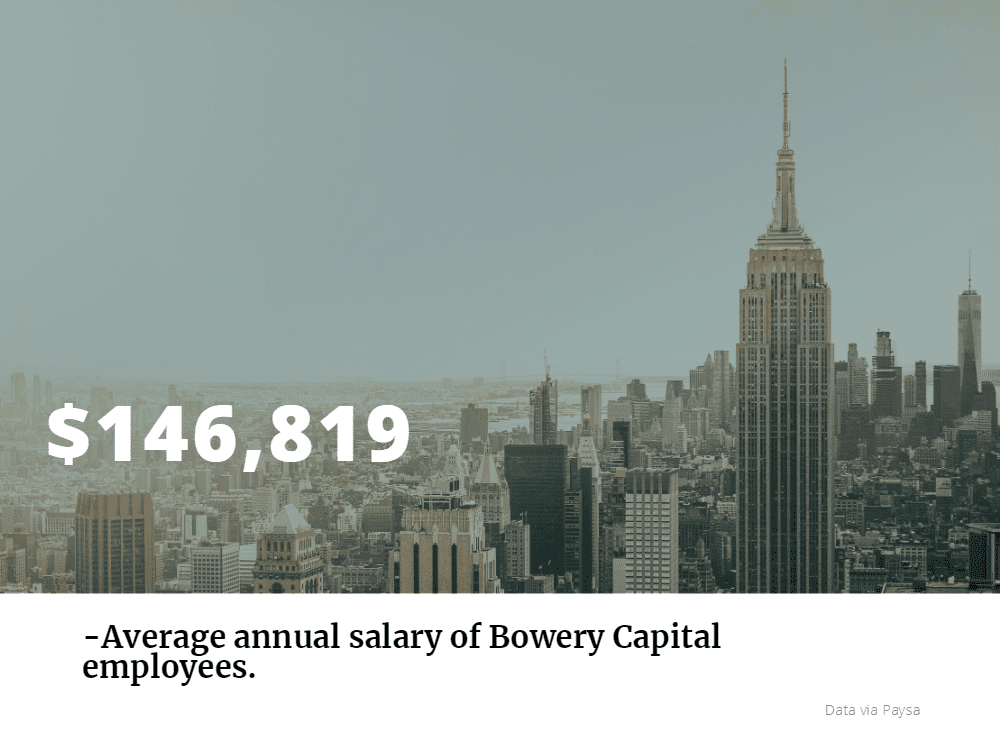
According to Paysa, Bowery Capital employees make an average annual salary of $146,819, with $97,852 marking the 25th percentile and $179,767 at the 75th percentile. However, this data does not indicate the average salaries by position, so it is unclear how much an employee who recently graduated with an MBA would make.
Life at Bowery Capital
Bowery Capital has not published any employee demographics or statements about their workplace culture, but all reviews from former employees on Glassdoor are overwhelmingly positive. In particular, they are nearly unanimous in their praise for a positive atmosphere and the expertise of their supervisors. The only con was from a former summer intern who mentioned that they had not been paid for their work at the firm.
Paysa also offers some helpful statistics on workplace demographics. Fifty-six percent of Bowery Capital’s employees are white, while the rest declined to offer this information. About 89 percent are male with the remaining 11 percent declining to disclose their gender. However, of the 12 team members listed on the company’s website, 5 are women. Additionally, the Paysa information is based on fewer than 20 users, so both of these data sets are in all likelihood only a small portion of Bowery Capital’s workforce.
Bowery Capital only has one office in New York City, but they invest in companies all over the country, especially on the West Coast, which as you may have heard has a thriving community of technological innovators.
While half of the Bowery Capital team is based in New York City, four are based in San Francisco and two are based in Boston. With this in mind, it seems likely that a Bowery Capital career would likely be based in New York City with potential opportunities for travel.
Master in Professional Accounting
UT Austin Master in Professional Accounting Program Structure
The UT Austin Master in Professional Accounting program (MPA) can be earned through three distinct, separate tracks: the traditional, one-year MPA (tMPA); an integrated MPA (iMPA) built for undergraduates that are also looking to earn a BBA; and an ECON-MPA for students attempting to earn a degree in Economics at UT Austin. Those in the traditional path must have an accredited Bachelor’s degree. However, no work experience is required.
Curriculum
The MPA curriculum at McCombs features customization to the preferences of the student’s desired career path, with tracks and MBA elective options in: finance; information technology; strategy; management; international business; business law; real estate; and more. Certificate programs are also available as options.
Class Profile
The most recent tMPA class at McCombs featured 62 students, 53 percent of which were female and 47 percent of which were male. The majority of the class, 57 percent, enrolled as non-state residents, with 43 percent Texas residents. There were 234 students enrolled in the iMPA class, with 47 percent female students and 53 percent male students. The majority of iMPA students, however, did come from Texas, at 86 percent.
The average GMAT score of the tMPA class was 668, the GPA was 3.7, and 53 percent of students in the program studied accounting as undergraduates. For the iMPA class, the GPA was 3.68.
Career Statistics
About 84 percent of graduates from the various McCombs MPA programs earned careers in various divisions of the public accounting industry, with less than seven percent earning roles in consulting and finance combined.
The average salary per year varied from $55,000-85,000 for the most recent class, with those in finance typically earning the highest annual salary and signing bonuses.
Tuition, Scholarships, and Financial Aid
The estimated tuition rate for the University of Texas MPA program at the McCombs School of Business is currently $10,053 per semester (nine credit hours) for in-state residents. For out-of-state residents, that nine-credit tuition rate is $15,458. Because of the variance in MPA programs, the total tuition costs can range from $25,352 to $39,191.
All admitted applicants from the U.S. are automatically considered for merit-based scholarships, in addition to the $10,000 Terri L. Holbrook Scholarship in Accounting (for students in the taxation track), the Fifth Year Accounting Scholarships (for Texas residents intending to complete their CPA in Texas), and more. Teaching assistantships are also available for select applicants, who can work on-campus for up to 10 hours per week.
Federal loans are available for select U.S. applicants, with private loans options also available for both domestic and international residents.
Admissions
To apply to the University of Texas MPA programs at the McCombs School of Business, students are advised to have previously completed the following courses: Principles of Macroeconomics; Principles of Microeconomics; Introduction to Statistics; Introduction to Financial; Accounting; and Introduction to Managerial Accounting. These courses can either be completed in-person or online, depending on preference.
No formal work experience is required in order to apply, but it is strongly advised. An accredited undergraduate degree is, however, required in order to apply (or a three-year equivalent degree). The minimum advised undergraduate GPA for applicants is 3.0.
In addition to a completed application, the following must also be submitted:
• Official transcripts
• A one page résumé
• Two letters of recommendation
• Statement of purpose essay
• GMAT/GRE scores (no minimum score required)
• IELTS or TOEFL test scores (if necessary for English-speaking requirement)
• $125 fee
Application deadlines are as follows:
U.S. Early – Dec. 1
International – Jan. 5
U.S. Final – March 31
News Roundup – Vanderbilt Grants LGBTQ Fellowship, McCombs at SXSW, and More
Let’s take a look at some of the biggest stories from this week, including the new LGBTQ Fellowship offered at the Vanderbilt University Owen School of Business.
Greg Geffre (EMBA’21) Will be the First Recipient of the Executive MBA Program’s Reaching Out LGBTQ MBA Fellowship – Owen School of Business News
Vanderbilt University’s Owen School of Business granted its first Reaching Out LGBTQ MBA Fellowship to Executive MBA candidate Greg Geffre.
Reaching Out MBA (ROMBA) is a nonprofit organization that helps LGBTQ b-school students to develop their professional goals via scholarships, networking, and educational programming. This is the first year that the group will assist an Executive MBA, but Reaching Out MBA Fellowships have been granted to previous daytime students at Vanderbilt for the past several years.
Greg Geffre began his career with Wells Fargo in its financial crimes division, and shifted into a compliance analyst role at UBS after relocating recently to Nashville. He has participated in the Pride Networks at both organizations. Of his experience, Geffre says:
“Coming to a new city, not having a graduate degree—I knew that was something I wanted to do. And I knew that now is the best time to do it … After the MBA, I’m hoping that I’ll be able to start transitioning myself as more of a senior leader and start moving into more into a higher-level decision maker role. An advanced degree is necessary to do that.”
For more on Vanderbilt’s Executive MBA program, visit the program page. Read here for more on ROMBA.
He Fights On for Marines and USC – USC Marshall News
This summer, the Marine Corps Scholarship Foundation honored USC Marshall alum and trustee William “Bill” Schoen with the Semper Fidelis award.
According to the Foundation’s statement, “In the spirit of the award’s meaning, ‘always faithful,’ Schoen was commemorated for his many contributions to the Marine Corps community and Marine Corps Scholarship Foundation’s mission to empower Marine children in their pursuit for a higher education.”
Schoen served in the Marine Corps from 1953-1961, and he has served as member of the Founders’ Group of the Marine Corps Heritage Foundation. He also serves on the Advisory Cabinet of the Marine Corps Scholarship Foundation’s American Patriots Campaign. “The Marine Corps opened my eyes to the endless possibilities available through hard work, dedication, sacrifice, honor. This is one of the reasons that supporting other Marines and the Marine Corps in such an integral way is part of my life,” says Schoen.
It is also, he continued, a reason that he pursued a career in business leadership. Schoen was founder and CEO of Health Management Associates Inc., which he established in 1985. Under Schoen’s leadership, the Florida-based corporation, which specialized in management of over 70 acute care and psychiatric facilities, earned a place in the Fortune 500.
Schoen received the USC Alumni Association’s highest award for his achievements in 2016. Read here for more on Schoen and the Semper Fidelis award.
Vote McCombs for SXSW 2020 – McCombs School of Business News
Faculty from The University of Texas McCombs School of Business hope to share their knowledge at South by Southwest (SXSW) in 2020, and they are asking for help from the public to nominate them for a spot at the conference.
Potential speakers have posted a number of possible topics on which they can speak at SXSW, and the selections and voting instructions can be found here. Voters can choose from such topics as cryptocurrency and big data in daily life. Other potential talks are The Power of Students as Policy Entrepreneurs, (in the Higher Ed category); Alexa, Call the Healthcare Cyberwarrior Hotline! (in the MedTech Category); and People Analytics and the Game of Life in the Workplace category.

Members of the McCombs School of Business will be speaking at next years SXSW in Austin, Texas.
This year’s SXSW conference will take place March 13 – 22, 2020 in Austin.
How Big Data Can Combat Addiction – Fox School of Business News
Kuang-Yao Lee, Assistant Professor of Statistical Science at the Fox School of Business, has researched one of the most pressing issues of today: the problem of addiction among U.S. veterans.
The Veterans Administration has launched a study of one million veterans to track alcohol use over time in order to discover more effective treatment options. This is where Professor Lee’s statistical expertise comes in. Funded by the Office for the Vice President of Research at Temple University along with the VA, Lee’s process includes gathering data blood samples and health updates from veterans. The team’s hope is to identify specific combinations of genes that result in addiction, in order to apply earlier interventions in the future.
“Previous studies have suggested [these genes exist], but mostly were only limited to small scales or restricted conditions,” he says. “We want to use statistical models to find out if this is really a valid assumption. Our results so far suggest a very strong association.”
While health records and blood testing have long been available to researchers with similar goals, big computing has reached a point where it can gather millions more data points and process them at an exponentially greater speed. Lee hopes to apply the same methodology of data processing for not only addiction, but for other genetic, behavioral, and health problems. Read more on Lee’s research and on the VA’s efforts here.
UC Berkeley Launches Joint Master’s Degree in Business and Engineering – Berkeley Haas News
Berkeley’s Haas School of Business and College of Engineering have launch a dual MBA/MEng degree program, beginning enrollment in 2020.
Aimed at early career professionals, the degree will help students to advance into leadership roles with a unique knowledge base. MBA/MEng Program Faculty Director Candace Yano, who teaches at both Haas and Berkeley Engineering, says, “The program will prepare students to meet industry demands for graduates who are both business- and technology-savvy and can lead technical innovation efforts—a combination of skills needed in Silicon Valley and beyond.”

The all-new MBA/MEng degree at Berkeley Haas is slated to begin in 2020, with 20-30 students per cohort.
The demand for individuals with mastery of each field is great at companies such as Google, Microsoft, Apple, Boston Consulting Group, Citibank, KPMG, and Genentech. With multiple openings for jobs like principal architect, marketing analytics manager, strategy and operations manager and product manager, these organizations require the high level of understanding of how business grows upon technology.
Inspired by Berkeley’s undergraduate Management, Entrepreneurship, & Technology Program (M.E.T.), the program will welcome 20-30 student cohorts during its inaugural year. Read here for more on the MBA/MEng degree.
UVA Students Share MBA Application Advice
Current MBA students are one of the best resources for learning what it takes to get accepted into your target business school. They are recent applicants themselves and, therefore, know what it takes to stand out in the process.
At UVA Darden, rising Second Year students shared a blog filled with MBA application advice for full-time MBA applicants. Here’s what they had to say.
Apply Early
According to Allie Medack, the last thing you should do is wait until the last minute to start the application process. She found business school applications to be highly introspective, and so felt that she needed time to reflect on her experiences and who she was as a multi-dimensional person. “Your genuine excitement will catch the Admissions Committee’s attention and help you shine through the pack.”
Reflect on Your Story
“Let [your story] shine and recognize that it’s all new to anyone who doesn’t know you,” says Max Linden. He believes that every applicant already has many defining moments that to use to demonstrate character, so take advantage of that.
For Christina Wong-Namura that meant not being afraid to dig deep. “For me, I made sure that my highest and lowest points were transparent on my application—and I tried to make my personality shine through despite the word limit.”
Link Yourself to the Program
The question of “Why this school” and “Why me” are intertwined. You can’t explain one without the other, according to Bingjing “Krystal” Yao. You have to talk about your future career in terms of how this particular MBA program will help you. Look at your passions and contributions in terms of how they’ll impact the business school community.

“For me, I made sure that my highest and lowest points were transparent on my application—and I tried to make my personality shine through despite the word limit.”
Ask for Help
You don’t have to go through the application process by yourself. Jordan Hart advises to ask for help, get diverse perspectives, and talk to anyone you can. “There are many people who would be happy to help you as you take this exciting next step in your life—let them,” he says.
At the same time, you still need to make sure that you are self-aware and honest with yourself. While advice is good, be true to who you are and follow your own instincts.
Frame Your Narrative
A well-framed narrative is critical to differentiating yourself from every other applicant. That means it’s vital to showcase your unique experiences based on your early life, education, and career. “Consider of how these experiences play a role in your resolve to apply for an MBA program and to then transition to a successful business role after graduation,” explains Clement Le Royer.
More MBA Application Advice from Students
Five more UVA Darden MBA students offered advice in the original blog. Here’s just a quick overview.
- Connect with friends and family during your application process, says Chloe Stegeman.
- Craft a personal positioning or brand statement, advises Pierce Lee.
- Don’t obsess over online forums. Instead, focus on running your own race, recommends Temi Adekanbi.
- Take time to step away from your essays after you write them to gauge the clarity of your response, says Teresa “Tess” Engebretson.
- Choose an MBA program where you are celebrated, not just tolerated, says AJ Amankwaa.
This article has been edited and republished with permissions from its original source, Clear Admit.
Master of Science in Business Analytics
Minnesota Carlson Master of Science in Business Analytics Program Structure
The Minnesota Carlson Master of Science in Business Analytics (MSBA) can be completed in either just one year or in a part-time format.
Those enrolled in the full-time MSBA take classes exclusively during the day, with 45 credits worth of courses spread across three separate semesters. Those in the part-time format can complete the program in two years, with six-to-nine credits worth of classes per semester.
Curriculum
The full-time MSBA begins in June, with the initial summer semester featuring courses that cover “Business and Management Fundamentals.” The following fall semester features courses covering the “Technical Fundamentals,” while the final semester in the spring features “Advanced Analytics and Experiential Learning.”
Those in the part-time MSBA curriculum is structured similarly, only stretched over a longer period of time. In addition, part-time MSBA students complete a Capstone Project in Analytics in the final leg of the second year.
Class Profile
The most recent full-time MSBA class at the Minnesota Carlson School of Management featured 119 students in two separate cohorts. Among these students, 40 percent of students were female, and 87 percent hold international residency. The average age of the class was 24-years old, the average GMAT score was 703, the average GRE was 320, and the undergraduate GPA was 3.54.
Over 90 percent of the class had five or less years of professional experience, with 39 percent of the class only having between one-to-three years of experience prior to enrollment. The majority of students in the program studied engineering as undergraduate students (45 percent), followed by finance (12 percent), and business/management (11 percent).
Career Statistics
The most recent MSBA class earned an average post-grad salary of $98,205 USD and an average signing bonus of $7,800. The majority of graduates earned roles in the business/data analytics industry (51 percent), followed by marketing/sales (18 percent), and consulting (16 percent).
Tuition, Scholarships, and Financial Aid
Tuition for in-state students in the Minnesota Carlson Master of Science in Business Analytics program is $990 per credit, and $1,410 for out-of-state students in the full-time MSBA. Over the course of 45 credits, the in-state total comes to $44,550 and the out-of-state total comes to $63,450. These totals do not factor fees and other additional expenses. A nonrefundable $1,500 fee is required prior to enrollment to hold a spot in the program.
Part-time MSBA students should expect to pay $1,293 per credit and $58,185 in total for tuition, regardless of residency. These totals also do not include other fees and expenses. A nonrefundable $500 fee is required prior to enrollment to hold a spot in the program.
A total of $400,000 in scholarships will be awarded to full-time MSBA students, with 20 separate $20,000 scholarships offered at the beginning of the program. No application for this scholarship is necessary. However, the offer is only for U.S. residents or citizens in the full-time program. International students are also automatically submitted for consideration for other merit-based scholarships.
Federal and private loans may be available to students in the program. However, specific availability may depend on national residency and other factors.
Admissions
In order to enroll in the Minnesota Carlson Master of Science in Business Analytics program, applicants must have an undergraduate degree, completed a college-level calculus course, earning a “C” grade or higher, and demonstrate proficiency in one of the following computer languages: Python; R; C; C++; C#; VB; Java; Pascal; or Fortran.
Along with a completed application, the following must also be submitted:
• Official transcripts
• A 750 word (two-page max) applicant statement
• GMAT/GRE scores (waivers available for select applicants)
• A current resume
• Two letters of recommendation
• TOEFL or IELTS scores (if necessary)
• $75 application fee
• A video essay
In-person, 30-minute interviews are conducted by request on campus or over Skype.
Application deadlines are as follows:
Full-Time MSBA:
Round One – Nov. 1
Round Two – Jan. 4
Round Three – Feb. 1 (final deadline for international applicants)
Round Four – March 15
Part-Time MSBA:
Round One – Dec. 1
Round Two – Feb. 1
Round Three – April 1
Round Four – June 1
Round Five – July 15
All applications for the part-time MSBA submitted after July 15 are reviewed on a space-available basis.
Master of Science in Business Analytics
USC Marshall Master of Science in Business Analytics Program Structure
The USC Marshall Master of Science in Business Analytics is a 33-unit STEM program designed to be completed in either three or four semesters. Courses are completed in the fall, spring, and the following fall, in the traditional three-semester sequence. A total of 19.5 units are dedicated to required courses, with 13.5 units dedicated to electives.
The program is designed for both full-time and part-time students, with full-time students completing the program in 18 months. Part-time students are only required to complete one class per semester. However, the part-time option is limited to U.S. students only. No courses are offered online.
Curriculum
The Master of Science in Business Analytics features nine total required courses worth 19.5 units and 13.5 units of electives from a choice of 19 total courses. A traditional schedule features five core courses in the initial fall semester, plus one optional elective course. The following semester, in the spring, usually features three core courses and the beginning of required elective courses. The following fall features the majority of one’s elective courses plus any remaining core courses that have not been completed at that time.
While in the program, students acquire broad knowledge of the following subjects:
• Statistical modeling
• Data management
• Visualization and Optimization
• Information security
• Decision-making under uncertainty.
In addition, those students will learn to use tools to analyze large data sets, translate analysis to real-world situations, and learn to present that data to a larger audience.
The skills learned can be applied to a multitude of industries, including: marketing; finance; operations management; retail; banking; manufacturing; healthcare; and entertainment.
Class Profile
The most recent USC Marshall Master of Science in Business Analytics class featured 97 students, with 53 percent female students and 47 percent male students.
The majority of the class hailed from China (65 of the 97 students), followed by U.S. students (16). The average GMAT score for the class was 724, the GPA was 3.7, and the average work experience was 13 months. The average age of the class was 26.
Career Statistics
Graduates from the program earning an entry-level job can expect to earn between $80,000-140,000, while those with five or more years experience can expect to earn between $105,000-160,000.
Tuition, Scholarships, and Financial Aid
Total tuition for the USC Marshall Master of Science in Business Analytics program is an estimated $63,096, with individual credits worth $1,912. An additional $1,300 is asked to cover career events in the program. In addition, a $2,000 nonrefundable deposit is required to hold a spot in the program.
Financial aid is not provided by the university. However, federal and private loans can be used to finance one’s education. Scholarship opportunities are limited.
Admissions
In order to apply to the USC Marshall Master of Science in Business Analytics program, applicants must provide the following:
• Official transcripts
• A completed application
• A one page résumé
• A personal statement
• One letter of recommendation
• One-minute video
• GMAT/GRE scores
• Application fee (waived for current USC students, staff, and alumni)
• Proof of English proficiency (if necessary)
Work experience is suggested but not explicitly required in order to apply. The current acceptance rate to the program is around 14.2%.
The fall 2020 application deadline is October 1, 2019.
Boston University’s Barbara Bickart Answers Our 5 Questions
In our latest installment of the MetroMBA “5 Questions” series, we speak with Barbara Bickart, Associate Professor of Marketing and Senior Associate Dean for MBA Programs at the Boston University Questrom School of Business. Bickart talks about the school’s new Online MBA, what’s next to come for the business school, and what type of student may be a perfect fit for the program.
1.) Why You Believe Now Was the Right Time for BU Questrom to Introduce an Online MBA Program?
“Significant advances in digital technology and education delivery platforms makes it possible to now offer high-quality and rigorous degree programs in an online setting. Because of these changes, at both the university and the school level, we felt it was imperative to develop the capability to offer online degree programs at scale. Further, the global market appears strong, particularly at the lower price point. edX has received over 10,000 inquiries for an online MBA program, making it their most requested Master’s degree. The edX technology platform is scalable and has a global reach of over 20 million learners, which will help us to expand our portfolio to reach a unique segment of business learners.
In addition, the global market for online professional education is sizable and there remains value in the MBA degree credential overall. According to a 2018 survey by the Financial Times, MBA grads nearly double their pre-MBA salary within three years of completing the degree.
Finally, the invitation to partner with edX provides an opportunity that aligns with our social mission to expand access to a top-tier business education throughout the world.”
2.) How Will the Questrom Online MBA be Different from Other School’s Online Programs?
“Unlike other online MBA programs, our program was designed from the ground up with the global online learner in mind. In the design process we leveraged knowledge gained from the BU Global Business Education Jams to create an updated and relevant MBA for the 21st century. Key themes include creating a socially responsible business, decision-making in a data-driven environment, managing with integrity, global business strategy, and developing an innovative mindset.
In addition, most other online programs offer traditional disciplinary-based courses. In contrast, our program focuses on developing the capabilities that lead to managerial and business success. By focusing on delivering capabilities versus disciplinary based courses we can leverage more fully the expertise of our alumni and other business leaders in developing exercises and cases that can better support a problem-solving approach to learning in a scaled environment.”

Barbara Bickart, Associate Professor of Marketing and Senior Associate Dean for MBA Programs at the Boston University Questrom School of Business.
3.) How Important is Being One of the First Major Business Schools in Boston to introduce an Online MBA?
“We are not the first online MBA in Boston. Babson, Simmons, and Northeastern offer traditional online MBA programs. We are, however, the first scaled MBA in Boston and only the second in the world.
Traditional online MBA programs are offered by about twenty of the top fifty MBA programs in the United States, and charge the same tuition as their residential program. Our scaled online MBA through edX is a new MBA category; and lies outside of the traditional and increasingly crowded online market. Our program will increase the accessibility of an online MBA both in the Boston region and globally.”
4.) Is This a Sign of More Programs to Come?
“Definitely! Entering the online MBA market at this time allows us to generate new capabilities, content, and infrastructure that will create hybrid flexibility in our current program portfolio and introduce new credit-bearing and noncredit-bearing programs in the future. We see also this initiative as creating the technology platform to develop forms of digital engagement to drive lifelong learning for our alums.”
5.) What Do You Believe Will be the Ideal Questrom Online MBA Candidate?
“The ideal BU Questrom Online MBA candidate is someone who has been working for about five to seven years, does not want to leave their job, and is seeking to advance their career. These individuals work in a variety of organizations, including the business, not-for-profits, education, and government sectors. They are busy people with complicated schedules and therefore seek the convenience of an online program. In addition, they may live in a location (either in the United States or abroad) where access to a high-quality MBA program is limited. They are curious and are motivated to complete a degree in an online setting.”
Master of Business Analytics
MIT Sloan Master of Business Analytics Program Structure
The MIT Sloan Master of Business Analytics (MBAn) is a 12-month, doctorate-level STEM certified program that is completed over four consecutive semesters. The program features eight required core courses, three-to-six analytical electives, a seven-month analytics capstone project with a 10-month summer internship, and a one-week west coast immersion. In total, students in the program must complete 48 units of course work, 27 of which must be dedicated to electives.
Curriculum
The fall semester features six of the eight required courses, with varying unit length between each course. For instance, Analytics Edge features 12 units, while Analytics Software Tools in R, Python, SQL and Julia features three course units in the fall and then three more course units the following semester. Students can also complete up to 12 electives in the first semester. This is optional, however.
The following winter semester—the January Independent Activities Period (IAP)—features the beginning of the 24-unit capstone project, in addition to the remaining required core courses, seminars, and the Analytics Career Bootcamp. The spring and summer semester features the culmination of the aforementioned 24-unit Analytics Capstone Project.
Class Profile
The MIT Master of Business Analytics Class of 2020 features 62 students, 40 percent of which are women and 73 percent of which hold international residency. These students are, on average, 23-years old.
Among those students, the GPA was 3.9, the average GRE quant score was 168, and the average work experience was just nine months. The majority of the class studied engineering as undergraduates (29 percent), followed by mathematics (24 percent).
Career Statistics
One-hundred percent of the most recent class earned job offers by graduation, earning a base annual salary range between $87,000-190,000 and an average of $110,000. The majority of those graduates earned jobs in the software industry (40 percent), followed by consulting (28 percent), and manufacturing (12 percent).
Tuition, Scholarships, and Financial Aid
Tuition and fees for the MIT Master of Business Analytics program at the Sloan School of Management is currently $87,740. Included additional estimated expenses, the 12-month program costs $136,480. However, with the $22,000 from the Analytics Capstone sponsor, the tuition and fees may reduce to $65,740.
Federal loans, private loans, assistantships, and fellowships may be available to all students, depending on eligibility, to help finance the program.
Admissions
In order the apply to the MIT Master of Business Analytics program, the following must be provided:
• Official transcripts
• A one page résumé
• One essay question (500 words): “Please describe your reason for pursuing the Master of Business Analytics degree. What do you hope to gain from the program? And what are your career aspirations?”
• Three letters of recommendation; two from faculty, one from a work supervisor or manager
• A brief video statement
• An optional 250-word essay
• GMAT/GRE scores
• TOEFL or IELTS scores (if necessary)
• $150 application fee
Application deadlines are as follows:
Jan. 8, 2020 (decisions released March 5, 2020)
Master of Finance
UMD Smith Master of Finance Program Structure
The AASCB-accredited UMD Smith Master of Finance program is a 30-credit specialized master’s degree that can be completed in either 9 months, 12 months, or 20 months on its own. Undergraduate business students at the University of Maryland can also earn a bachelor’s degree and the Master of Finance degree in the “Plus 1” track. The program begins in the fall on the main campus of College Park, Maryland. No online classes are available.
Graduate students in the Master of Finance program have the option to complete one of two tracks: Financial Analysis – Risk Management, and Asset Management. Twelve credits are dedicated to the core program and 18 credits are dedicated to track electives.
Curriculum
Every class in the UMD Smith Master of Finance program is worth two credits each, regardless if it is an elective or a required core course. Meaning, the 30-credit program features 15 total courses. Included in the curriculum is an experiential learning opportunity, allowing students to accrue hands-on experience with established companies, such as Capital One; Citi Bank; and the Federal Housing Authority; among others.
Class Profile
According to the class of 2020, the average undergraduate G.P.A is 3.4. 46 percent of the student body was women, with the average GRE score being 313 and the average GMAT score being 658.
Career Statistics
UMD Smith Master of Finance graduates can expect to earn an average annual salary of $80,000 USD. This is about $10,000 more annually than Master of Accounting graduates at UMD Smith and $5,000 more per year than Master of Supply Chain graduates.
Recent UMD Smith MFin data indicates that around 94 percent of graduates earned full-time employment within three months of earning the degree, with about 71 percent employed within just three months.
Tuition, Scholarships, and Financial Aid for the Maryland Master of Finance
Tuition for in-state residents in the University of Maryland Master of Finance program is currently $1,582 per credit. Out-of-state resident tuition is $2,015 per credit. MFin/MQF (Master in Quantitative Finance) tuition is $2,098 per credit.
In total, Maryland residents should expect to pay $49,963 (tuition and fees), while non-Maryland residents will pay around $65,247.
Numerous scholarship opportunities are afforded to Master of Finance applicants, including merit-based scholarships, which require no additional application.
Federal and private loans, as well as assistantship opportunities are offered to students to help fund their education, although the availability of certain loans may depend on the national residency of the applicant.
Admissions
University of Maryland graduates potentially enrolling in the UMD Smith Master of Finance program may be eligible to waive the application fee, as well as the GMAT/GRE and video submission requirement. Eligibility is limited to UMD grads that have a GPA of at least 3.5, as well as a “B” average (or better) in Statistical Analysis or Quantitative Research Methods Courses.
Traditional applicants must provide the following:
• Official transcripts
• A completed application
• A “sufficient quantitative background”
• GMAT/GRE scores (waivers available)
• One letter of recommendation
• A current resume
• One essay
• A video response
• TOEFL or IELTS scores (for non-native-English speaking applicants)
• $75 application fee
2020-2021 Maryland Master of Finance Deadlines
| Application Deadlines | Decision Deadlines |
| October 15, 2020 | November 30, 2020 |
| November 16, 2020 | January 15, 2021 |
| January 15, 2021 | March 1, 2021 |
| February 15, 2021 | March 31, 2021 |
| March 10, 2021 Priority deadline for international applicants. |
April 21, 2021 |
| April 1, 2021 | May 10, 2021 |
Seattle or Portland: Which City Should I Choose?
The Pacific Northwest draws an enormous pool of talented people to visit, to live, to work and to play—for good reason. The region’s high concentration of startups and large, established companies appeal especially to current or recently graduated business school students. All the while, a thriving cultural landscape of tech, art, music, food, drink, and natural beauty make the area on par with Silicon Valley as a great American destination.
Portland and Seattle are clearly at the head of the pack when it comes to the most desirable Pacific Northwestern cities. In another installment of ‘Which city should I choose?’, we will compare the two in hopes of helping you narrow down your decision.
Seattle or Portland: Job Markets
Seattle and Portland are both major port cities in the U.S., and each are home to heavy industries like steel and aeronautics. However, both cities are known most recently as hubs for clean energy, tech and retail, drawing professionals from all over the world to work in these fields.
The Portland region has even dubbed “The Silicon Forest” for its abundance of tech and other types of startups. According to a recent report on OregonLive, tech employment in Portland expanded by 3.1 percent between December 2017 and the end of 2018; the fastest growth rate for the state in several years. While the statewide annual average income across all industries is $53,000, the tech average is $115,000 per year. Furthermore, the past year has seen the amount of startup funding invested new firms double, to hit the highest rate since the dotcom bubble.
Portland itself has an exceptionally low rate of unemployment, and a job growth rate that is 7 percent higher than the rest of the country. Along with tech/IT jobs, Portland offers numerous opportunities for related jobs in manufacturing, along with healthcare, retail and education. It’s also interesting to note that Portland is 4th in the country for telecommuting.
Fortune 500 company Nike (founded in Portland), Adidas, Dr. Martens, Columbia Sportswear, and Keen all have headquarters in Stumptown, and Merrell and Under Armour have design studios here. The thriving restaurant, coffee and microbrewery scenes should not be overlooked either, as these are some of the most prevalent of Portland startups.

Sports apparel manufacturing giant Nike has called the Portland metro its home since its founding in the late 1970s.
Seattle too, boasts a strong and diverse job market. According to Anneliese Vance-Sherman, a regional labor economist for the State of Washington, “It is noteworthy that at this point … all industries are seeing job growth. We are at a mature point where the benefit of growth is being felt in all industries.” According to the state’s Economic Security Department, tech, online retail trade, professional services (such as engineering and construction), and healthcare and manufacturing are all growth fields.
Seattle is home to a high number of Fortune 500 companies, and one that immediately springs to mind is, of course, Amazon. Nintendo, Microsoft, T-Mobile, and Expedia also have headquarters in the Seattle metro, in addition to retail giants Nordstrom and Costco, and global aerospace company Boeing. If you’re seeking a role in the management, tech or finance end of the coffee business, Seattle is also the place for you. The city is home to Starbucks and Seattle’s Best, as well as thousands of smaller producers of the beverage.
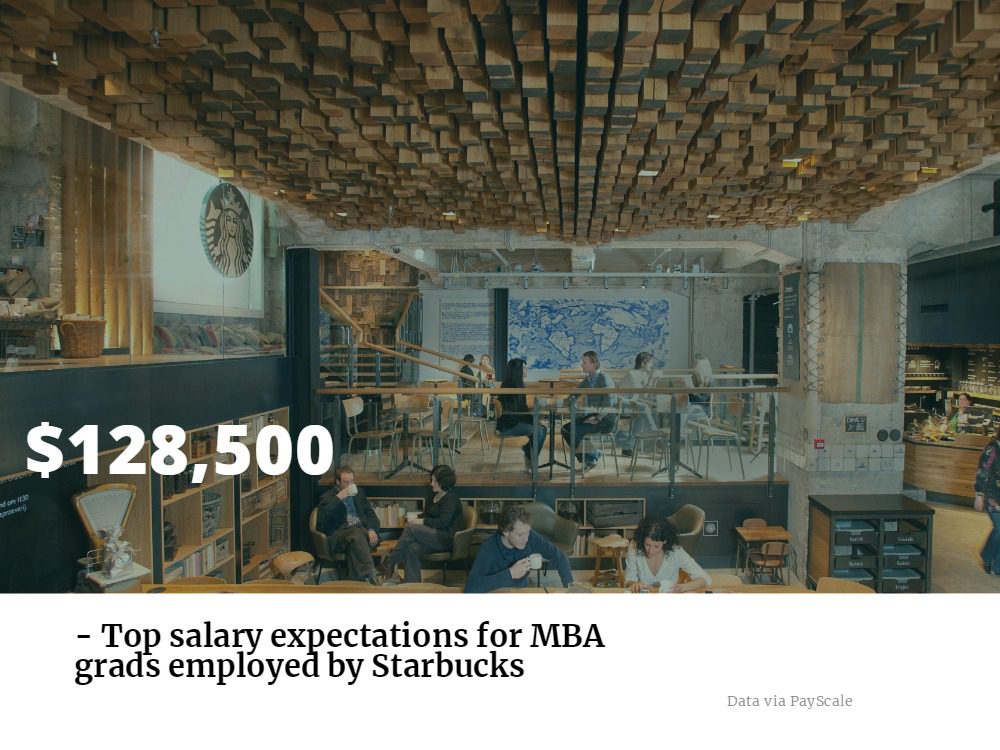
Seattle or Portland: By the Numbers
BestPlaces.net reports that Portland’s household income, on average, is 23 percent less than Seattle’s, but is 6 percent higher than the national average. Also, Portland is 27.5 percent less expensive overall than Seattle, with housing costs at almost 44 percent less. Numbeo’s comparison of the monthly cost of living in each city reveals that for $5,000 per month, one can maintain the same standards for living in Portland that would require $6,000 a month. Here is a further look at some of the numbers, side by side.
- Median income: $115,000 in Seattle, $80,000 in Portland
- Unemployment rate: 3.1 percent in Seattle, 3.5 percent in Portland (compared to 3.9 percent overall in the U.S.)
- Future job growth: 44 percent in Seattle, 42 percent in Portland
- Average Rent: $2,000 for a one bedroom in Seattle, $1,500 in Portland

The search for affordable housing in Seattle is among the toughest in the U.S., with average home prices in King County soaring over the past five decades. The Seattle Times reports that since 2014, Seattle metro home prices have grown at double the national average.
Seattle or Portland: Culture
Many visitors to both cities have observed that they are overall very similar culturally, Portland tends to be a bit more quirky—there’s a reason for that “Keep Portland Weird” mural and the popularity of Portlandia. Street performers and food trucks characterize Portland’s streets, and while Seattle has its fair share of street life, many say it feels a bit more “buttoned up.” Portland is also smaller in population at 650,000 to Seattle’s 730,000 residents, as well as geographically smaller.
If live music is your thing, expect an amazing array of options in both cities. Small venues can be found in large supply in both towns, as well as bigger stadiums. Each city also is home to thriving arts scenes that include large museums and small galleries. Even without the diverse music scene, sports fans feel at home in the both cities, with Portland’s beloved Trail Blazers in the NBA and Timbers in the MLS, while Seattle’s NFL franchise the Seahawks reign supreme in the Emerald City. While the NHL is looking to expand in the Seattle metro in 2021, the loss of the Seattle Supersonics in the NBA still stings (sorry).
Both cities are wonderfully walkable, and citizens have a high consciousness of sustainable forms of energy, design, and building. As mentioned above, Portland and Seattle both have exciting, cutting edge restaurant, coffee, and microbrewery communities. Eater has published definitive guides to both cities, and the debate rages on upon which is better.
As far as getting around, Seattle offers bus and monorail transport, while Portland offers more public transit options with streetcars, light rail, and buses. Portland is also known for a high number of cyclists, which many agree is more of a prevalent transit mode than it is in Seattle.
As both cities are situated on the beautiful Pacific Northwestern coast, their options for outdoor fun are some of each place’s biggest draws. Seattle sits on the shore of the Puget Sound, and it boasts Lake Union, Green Lake, and Lake Washington for hiking and recreation. Portland too lies on both sides of the Willammette River and it’s also close by the Columbia River. Portland’s Mount Hood and Seattle’s Mount Rainier also provide stunning locations for hiking, biking, and camping. Skiiers will find more options on Mount Hood than on Mount Rainier, with more resort locations on the former.
Yes: rainfall is a fact of life in these parts, with each city averaging around 37 inches per year. This doesn’t deter most residents, however, from enjoying the great outdoors.
Seattle or Portland: Business Schools
As we’ve mentioned, the job markets in both Seattle and Portland are ripe with opportunities for MBAs. As far as places to study, the Albers School of Business and Economics at Seattle University, Foster School of Business at University of Washington, and Seattle Pacific University’s School of Business, Government and Economics are all well regarded for its MBA programs. UW Foster, in fact, is one of the most well-regarded business school’s in the world. U.S. News & World Report currently ranks it as the 7th best public business school in the U.S., and the 21st best business school in the entire country. The Financial Times and The Economist also rank the business school as one of the 50 best in the world.
Portland State, University of Portland, Willamette University, and Concordia University all offer strong MBA programs as well.
Master of Finance
MIT Sloan Master of Finance Program Structure
The MFin program at the MIT Sloan School of Management is an 12-to-18 month STEM focused specialized masters program. The 12-month option is for applicants who wish to earn their degree in a more timely manner, while the 18-month option allows students to be more flexible with their schedule and complete an optional internship during the second year.
The program begins in July, regardless of which length of time students wish to earn their degree. During the program, all students receive CDO advising and advice for full-time recruiting, in addition to completing a required action learning segment.
Curriculum
After completing the mandatory orientation sequence in July, students begin the summer semester with required foundational courses, of which include: Finance Theory; Corporate Financial Accounting; Financial Mathematics; and/or Advanced Mathematical Methods for Financial Engineering.
The fall term (September to December) features required advanced subjects, action learning, and the beginning of elective coursework. Elective work is centered around concentration options, of which students are allowed to take only one during their time in the program. The concentration options are: financial engineering; capital markets; and corporate finance.
The spring term (February to May) features mostly elective courses and the option to complete a Master’s Thesis. Those in the 18-month track continue their education through the following summer and fall terms, which include an optional internship opportunity and more time to complete their thesis.
Class Profile
The most recent MIT Sloan MFin class features 116 students from 30 countries. Among these students, 42 percent are women. The class work experience average is 14 months.
The typical GMAT range for the class is 700-770, and the undergraduate GPA is 3.76. Most students (34 percent) enroll with a math and science education background, while 30 percent of the class studied business, 22 percent studied economics, and 11 percent studied engineering.
Career Statistics
A reported 99 percent of MFin graduates from MIT Sloan earned full-time employment offers within six months of earning their degree, with 100 percent of 18-month track MFin students accepting an internship offer. Around 75 percent of those who undertook an internship in the program accepted a full-time job offer from the company.
The median post-graduate salary of U.S. students is $95,000, while international grads can expect to earn around $85,000.
Tuition, Scholarships, and Financial Aid
Tuition and fees for the 12-month MIT Master of Finance is currently $85,807, while those in the 18-month track will pay $118,177. These figures do not include estimated living and personal expenses, which may greatly vary.
A limited number of fellowship and scholarship opportunities may be available for MIT MFin applicants. More details can be found on the MIT financial aid website. MFin applicants may be able to finance their education with personal savings, private, and federal loans, depending upon their country of residence.
Admissions
In order to apply to the MIT Master of Finance, applicants must submit:
• Official transcripts
• A one page résumé
• A written essay
• A 60-second video essay
• Three letters of recommendation
• GMAT/GRE scores (those with a GPA above 4.2 are not required to submit scores)
• Proof of English proficiency (if necessary)
• $150 application fee (waived for select applicants)
• A completed application
Application deadlines are as follows:
Jan. 3, 2020



